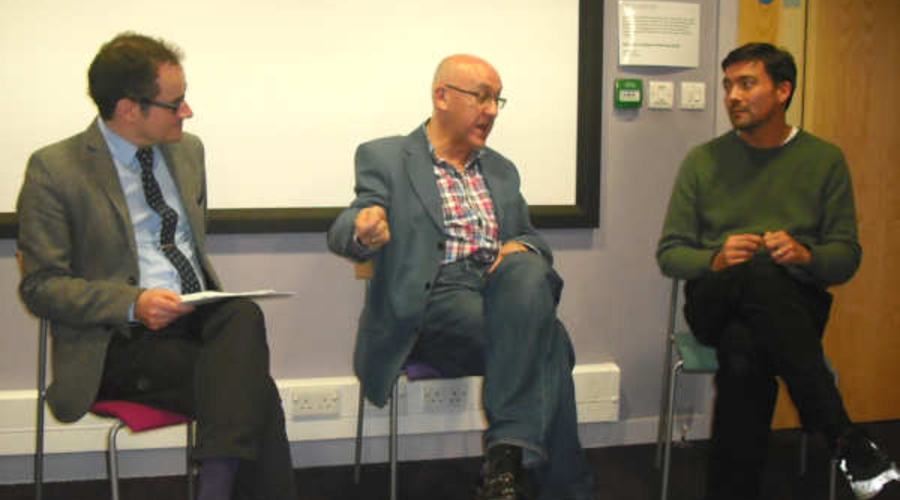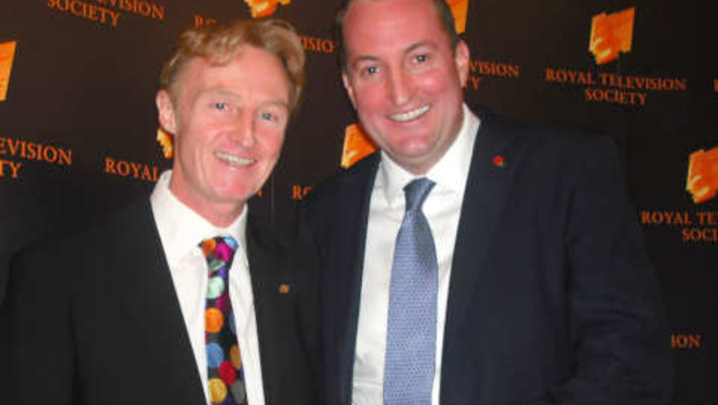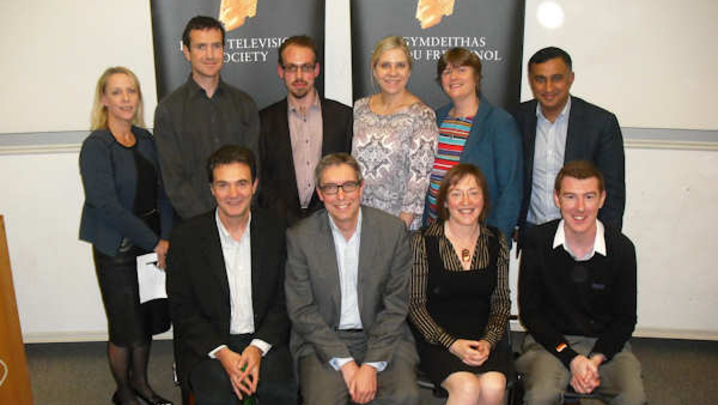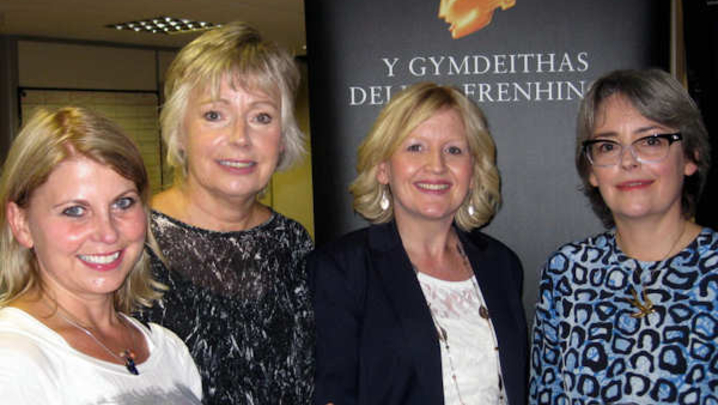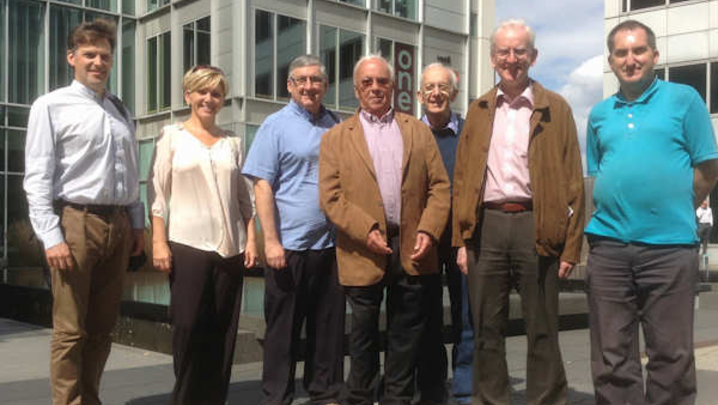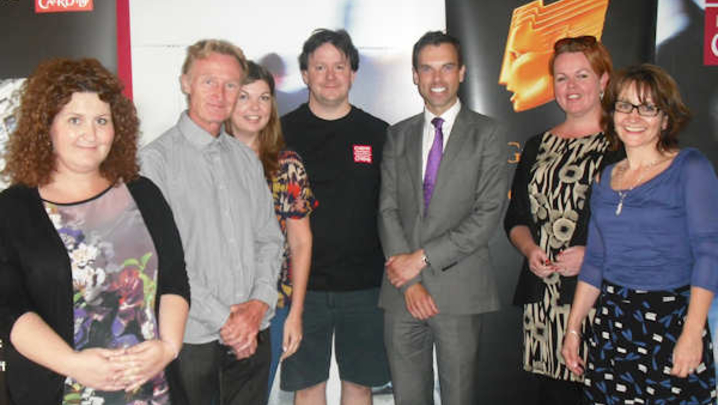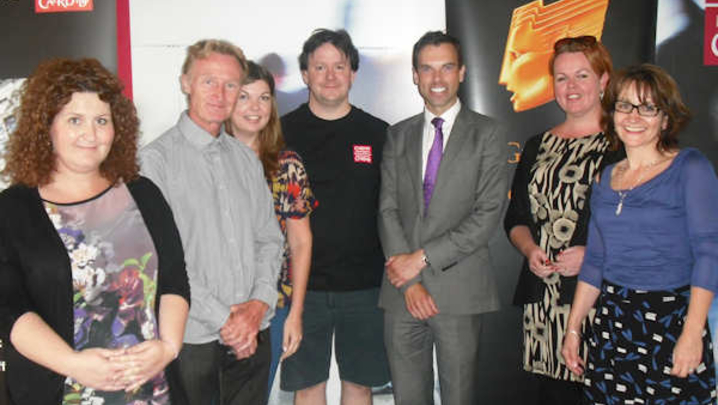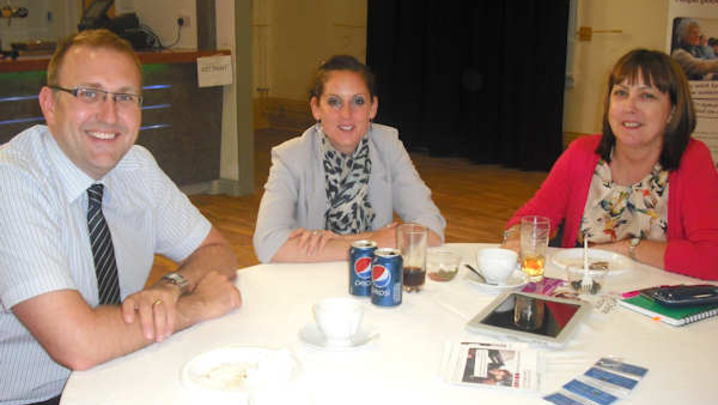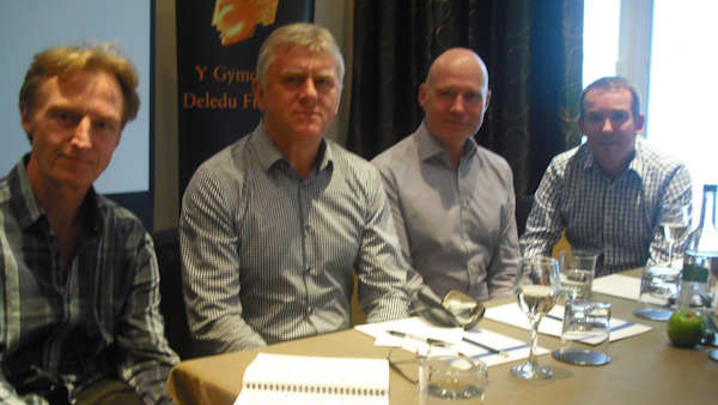Above: Chris Buxton, John Geraint, and Xavier Alford
Speaking at 'What's Up Doc?', our panel discussion held on the 12th December, Xavier Alford claimed that, "Docu soaps and ob docs offer a fingerprint of reality, preserving genuine, special moments that actually happened". The event was held in conjunction with Media Academy Wales and University of Wales Trinity Saint David, whose Swansea-based media faculty was a particularly appropriate location for this event, given the success of the BBC3 series, The Call Centre. The series depicted life at 'Swansea's third largest call centre' and Alford, the series' director, took part in the discussion along with John Geraint, an independent documentary producer with Green Bay Media, whose recent credits include The Story of Wales, and Chris Buxton, a lecturer in digital TV production at the University, who chaired the discussion.
Following a compilation of clips from recent docu soaps, shown at the start of the evening, Geraint suggested that television had come a long way in terms of "representing ordinary people on air". But he noted that docu soaps, in popularising factual television, create "a tension between ratings and public service content. When Driving School was screened, it drew 11 million viewers, proving that drama-based techniques could be used in documentaries, delivering ratings and a favourable cost per viewer-hour".
For Alford, who started out as an independent producer working with his father's company before joining the BBC, characters such as The Call Centre Manager 'Nev', are 'intrinsically entertaining and extrovert' adding that, "Haylee (the tea lady) was good at interacting with other staff and was very watchable". But the series also featured less obvious subjects, "one person, who suffered from stuttering, thanked us for addressing his condition directly". Xavier emphasised the need for honesty and trust when working on location, "if something uncomfortable or bad happens we need to be able to film that". But this access comes with responsibilities, "you don't want to screw up people's lives over a TV programme".
But Geraint claimed that, "there should still be room for documentaries that don't chase ratings". In his view, the success of the genre raises the danger of focussing on trivia, and edging out more diverse high quality factual programming from the commissioning process.

